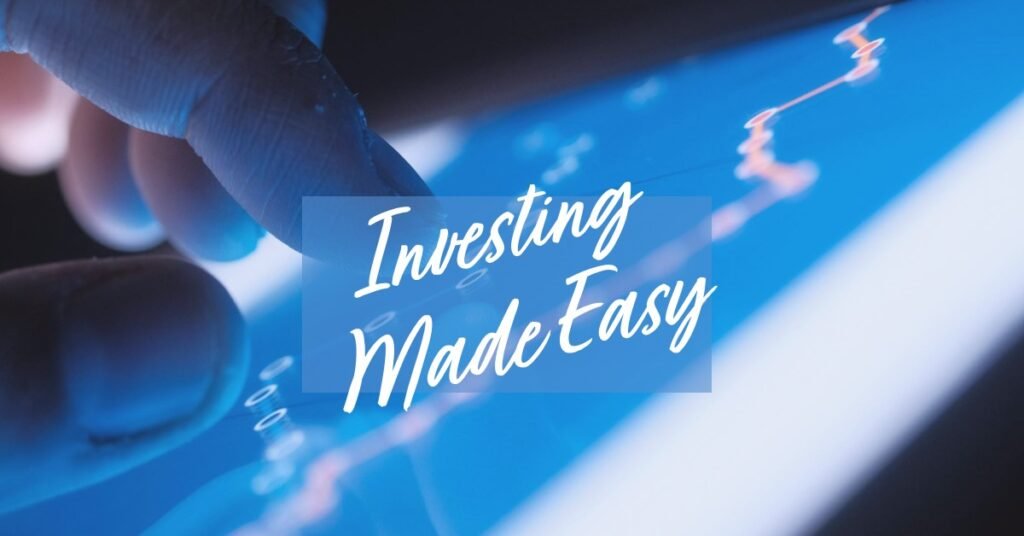A Beginner’s Guide to Investment Platforms
Are you thinking about diving into the world of investing but feeling a little overwhelmed by all the options? I get it. With so many investment platforms available today, it can be tough to know where to start. Whether you’re aiming to grow your savings, diversify your portfolio, or explore the investment world for the first time, this guide will break down everything you need to know about investment platforms in a friendly and approachable way.
What Are Investment Platforms?
Let’s start with the basics. Investment platforms are online services that allow individuals like you and me to buy, sell, and manage investments. They act as a middleman between us (the investors) and the markets. Whether you’re looking to trade stocks, bonds, ETFs, mutual funds, or even alternative investments like cryptocurrency, investment platforms provide a user-friendly interface to make all of this accessible.
Types of Investment Platforms
Not all investment platforms are the same. Here are a few categories you should know about:
- Brokerage Accounts: These are perhaps the most traditional type of investment platforms. With a brokerage account, you can trade a wide range of financial products, including stocks, ETFs, bonds, and mutual funds. Platforms like E*TRADE and Fidelity fall into this category.
- Robo-Advisors: If you’re new to investing or prefer a hands-off approach, robo-advisors like Betterment or Wealthfront can be an excellent choice. These platforms use algorithms to create and manage a diversified portfolio for you based on your financial goals and risk tolerance.
- Cryptocurrency Exchanges: Crypto is hot right now! Platforms like Coinbase or Binance allow you to trade digital currencies like Bitcoin, Ethereum, and many others.
- P2P Lending Platforms: Peer-to-peer lending platforms, such as LendingClub or Prosper, offer a way for you to lend money to individuals or small businesses, with the potential to earn interest on your loans.
- Real Estate Investment Platforms: If you want to get into real estate without buying physical property, platforms like Fundrise and RealtyMogul allow you to invest in real estate projects with a lower entry cost.
- Social Trading Platforms: Social trading platforms, like eToro, allow you to follow and mimic the investment strategies of experienced traders. It’s like having a mentor by your side while investing!
Why Use an Investment Platform?
Now, you might wonder, why not just invest directly in the stock market or real estate without using an investment platform? Well, here are a few reasons why investment platforms are your best friend:
Convenience
Investment platforms make it incredibly easy to start investing from the comfort of your home. Gone are the days when you had to call up a stockbroker or deal with paperwork. Today, you can open an account, deposit funds, and start investing in just a few clicks.
Access to a Variety of Assets
Platforms often provide access to a wide range of assets, including stocks, bonds, ETFs, and even alternative investments like cryptocurrency. This means you can diversify your portfolio without the hassle of managing multiple accounts.
Low Fees
Many modern investment platforms are affordable, with some offering zero-commission trading on stocks and ETFs. Compare this to the traditional days of investing, where you’d pay hefty fees to make a single trade. Always be sure to compare fees before choosing a platform. Some popular choices with low or no trading fees include Robinhood and Charles Schwab.
Educational Tools and Resources
Most platforms offer resources to help you learn the ropes. Whether it’s tutorials, webinars, or articles, they provide valuable information on how to make smart investment decisions. TD Ameritrade, for example, is well-known for its educational resources.
How to Choose the Right Investment Platform
With so many choices, how do you pick the right one for you? Here’s what I recommend considering:
1. Your Investment Goals
Start by asking yourself what your financial goals are. Are you saving for retirement, building an emergency fund, or aiming for short-term gains? If you have long-term goals, you might prefer a platform that offers a variety of asset classes, including bonds and mutual funds. If you’re focused on growing your wealth quickly, you might prefer a platform with low fees and access to high-growth assets like stocks or cryptocurrencies.
2. Fees
This is a big one. Different platforms have different fee structures. Some charge commissions for trades, while others may have management fees for maintaining your account. Watch out for any hidden fees as well, like withdrawal or inactivity fees. Platforms like Wealthfront and Fidelity are known for their transparent fee structures.
3. Ease of Use
If you’re new to investing, you want a user-friendly platform. Look for a clean interface, easy navigation, and helpful customer support. Betterment and Robinhood are popular for their intuitive designs.
4. Asset Variety
Not all platforms offer access to the same types of assets. For example, if you’re interested in cryptocurrency, you’ll need a platform that supports it, like Coinbase. If you want to invest in international markets, make sure the platform allows for that.
5. Security
Always check the security features of any platform you’re considering. Look for two-factor authentication, SSL encryption, and account protection guarantees. Also, check if the platform is regulated by a reputable financial authority, such as the Securities and Exchange Commission (SEC) or the Financial Conduct Authority (FCA) in the UK.
My Favorite Investment Platforms for Beginners
To help you get started, here are a few investment platforms I believe are great for beginners:
1. Robinhood
Robinhood is perfect for beginner investors who want to start trading stocks and ETFs without paying commissions. It’s known for its simple, mobile-first interface, which makes investing feel less intimidating. Plus, they offer fractional shares, which means you can invest in high-priced stocks with as little as $1.
2. Betterment
If you prefer a more hands-off approach, Betterment is an excellent robo-advisor that can manage your investments for you. All you have to do is set your goals, and Betterment will design and adjust a diversified portfolio tailored to your risk tolerance. It’s great for retirement planning and long-term goals.
3. Coinbase
For those interested in cryptocurrency, Coinbase is one of the easiest and most secure platforms to buy and sell digital assets. It’s beginner-friendly and offers educational resources to help you understand crypto investing. You can also set up recurring purchases to dollar-cost average into your favorite cryptocurrencies.
4. E*TRADE
A more traditional option, E*TRADE offers a robust suite of tools for more experienced investors, but it’s also welcoming to beginners. With a wide range of asset classes, including stocks, bonds, mutual funds, and ETFs, it’s a good choice for anyone looking for variety.
5. Fundrise
If real estate is more your style, Fundrise offers a way to invest in real estate without the hassle of buying physical property. You can get started with as little as $500, and Fundraise allows you to invest in a diversified portfolio of real estate projects.
Tips for Using Investment Platforms Effectively
Once you’ve chosen a platform and opened your account, here are a few tips to keep in mind:
- Start Small: It’s tempting to go all-in, but I recommend starting small, especially if you’re new to investing. Test the waters with small amounts of money until you feel more comfortable.
- Diversify Your Portfolio: Don’t put all your eggs in one basket. Spread your investments across different asset classes to minimize risk.
- Take Advantage of Auto-Invest: Many platforms offer auto-investing options, allowing you to set up recurring contributions. This is a great way to grow your portfolio steadily over time without having to constantly monitor it.
- Stay Informed: Keep an eye on market trends, economic news, and updates from your investment platform. Most platforms have built-in news feeds and notifications to help you stay informed.
Final Thoughts
Choosing the right investment platform is an essential step on your financial journey. The good news is that there’s a platform out there for everyone, whether you’re a hands-on trader or a set-it-and-forget-it kind of investor. By understanding your financial goals, assessing platform features, and starting with small, diversified investments, you can take control of your financial future.
Remember, investing is a marathon, not a sprint. Start slow, learn as you go, and let the power of compound growth work in your favor.
If you’re still unsure about where to begin, don’t hesitate to explore the platforms I’ve mentioned and see which one feels right for you. Happy investing!
If you want to dive deeper into investment platforms, you can check out these useful resources:

